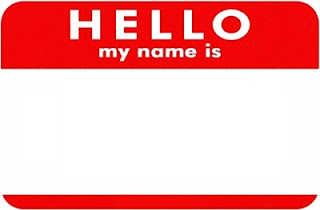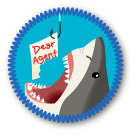 Writer's Etiquette: Rules for you to Follow
Writer's Etiquette: Rules for you to FollowYour friendly neighborhood intern here. I've been listening very closely and watching queries, and trying to figure out why some writers who have such great talent still get rejected. And I think I have some ideas or answers.
It is true that agents look for VOICE over everything. And then, the checklist goes down from there. How well edited is the work? How professional is the query? What online presence does the writer have?
But there are other things that can get a strike against you as a newbie or even an experienced writer.
This is what I've seen:
- No name included at the bottom of your query:
I have no idea why a writer would do this, but it happens a lot. And then, when I check the email to see if a name appears, sometimes it doesn't. Be sure to include your name, and make it easy for us to find it.
- Your Google/Facebook/Linkedin Picture is not professional:
You might have gotten a YES on your writing, but are you a YES professionally? We do check your pictures. Please, no photos of any kind unless you look professional. This means tidy, smiling, and dressed, not in ripped clothing!
You have to look like someone we'd want to do business with. You have to look like someone that we'd send to speak with children and teens.
Do you? Check your photos! We do.
(PS - Check your photo that comes across in emails - this one is forgotten a lot from the looks of them in our query box)
- Have a professional EMAIL account.
The best email is one that is your name. This makes it easier for us to know it's you.
This means no odd names or words that make it hard for us to know who is sending the email.
- Be kind to other genres
We know that there is an abundance of vampire, zombie, apocalypse, dystopian, fantasy, contemporary, and actually all genre manuscripts out there.
Do not be the writer who puts any of them down.
Do not start your query with this line:
This is not another vampire book...
You'll love to know that this is not about zombies...
We love all genres, and all books, and many of vampire, and zombie stories have made lots of money and touched many reader's lives for the positive.
Do not put them down.
- Being too friendly or too brief in your query.
For some reason, some writers think a super short, super friendly, nonchalant, email is best. It's not.
This is a business, and we need info about you, the book, and your successes as a writer.
Remember, we are not friends...yet. Do not email us like you would your buddy.
- Double checking if we have read your query. (Unless you have an offer of representation)
Every agent gets slammed with query letters. Hundreds of them a day come into the in-box. It takes time to read them all. We want to be sure that every query gets the time it deserves before a decision is made.
Do not be the writer who checks in unless you have an offer of representation.
On every agent's website, they say they do not have the time to reply to every submission. They also give a time limit. If you don't hear from them in that amount of time, assume that you have been rejected.
If you get an offer of representation, please let the agent know so they can bump your manuscript up the list in order of reading.
- Thanking the agent for a rejection
This happens rarely, but it's very nice. I see them in the inbox. And then we think that that writer is professional, and a nice person, maybe even someone we'd like to hear from again.
You don't have to say thanks for the rejection but know this, if you receive a rejection, of any kind, that means you were in the running for that YES.
It means you were really read and looked at, and there was something about your work worth an email back. You might want to say thanks for the encouragement. Because that's what it is.
A rejection took time to be written, and sent to you, at a time in an agent's career when there is no time! You're getting close to a YES. Feel encouraged!!
- It's not an age thing.
Stop telling us how old you are or where you are in your career. It doesn't matter. No one cares if you are a newborn or an old fart. If your writing is awesome, you will hear from us.
But telling us more than we need to know right now can turn us off. No one wants to read more than they have to. And again, we are not friends just yet. You don't know how old I am. I don't want to know how old you are. I also don't want to know if you are retired, retiring, or own your own business, or don't have the time to write because of your job, or you have 3 jobs, or you're in college or high school. It's all irrelevant!
Okay. That's it for now. If I notice any other things that you should or should not be doing in the query box, I will report them.
I hope you get that YES!!!
Write~on
Angie






























